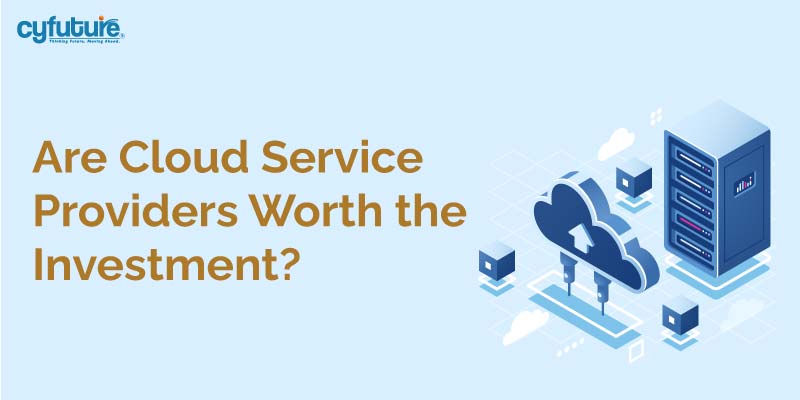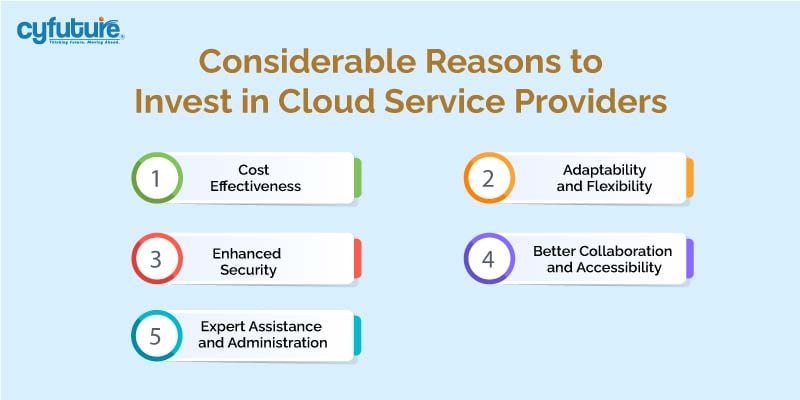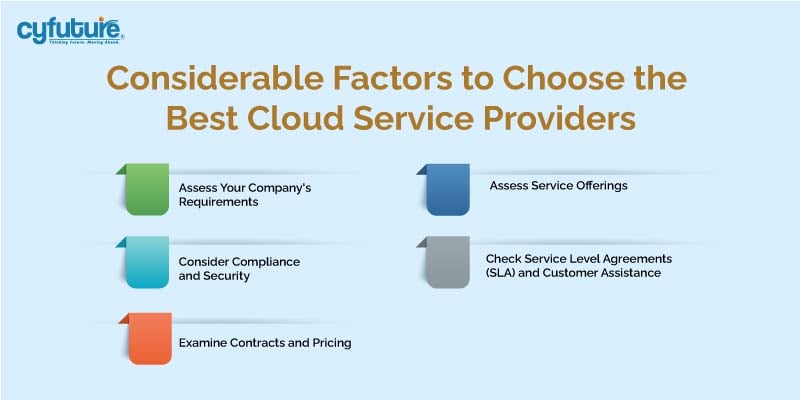-
Get Cloud GPU Server - Register Now!
Toggle navigation

According to the International Data Corporation (IDC) Worldwide Semi-annual Public Cloud Services Tracker, the infrastructure-as-a-service (IaaS), platform-as-a-service (PaaS), and software-as-a-service (SaaS) segments of the Indian public cloud services (PCS) market brought in $3.8 billion in revenue in the first half of 2023 (January-June). With a cumulative annual growth rate (CAGR) of 22.9% between 2022 and 2027, the Indian market for public cloud services is expected to reach $17.8 billion.
To develop operations, manage IT infrastructure, and boost productivity in the modern digital age, businesses are relying more on cloud service providers. However, is the cloud worth the investment? For the greater part of a decade, this is a question that has been echoing through business boardrooms and the minds of tech-savvy entrepreneurs.
Well, cloud service providers (CSPs) are becoming more popular as a means for businesses of all sizes to satisfy their computing needs as the digital era develops. Furthermore, cloud service providers (CSPs) offer scalable, flexible, and affordable data processing, storage, and management solutions that have completely changed the way businesses operate. But, are these returns substantial enough to make the investment worthwhile? Let’s explore this in detail.
However, let’s take a look into a few stats and data before delving deep.

Now, let’s take a look at how worth it would be to invest in cloud service providers.
“Cloud computing is not just the future; it is present.” A statement made by Sundar Pichai, the CEO of Google, perfectly captures the pervasiveness of cloud computing in today’s business landscape. Cloud services are becoming a vital component of how organizations operate, expand, and compete, for both Fortune 500 businesses and start-ups alike.
However, there are difficulties and limitations associated with adopting cloud services.
Cloud computing has advanced from a trendy term in technology to a vital part of today’s business infrastructure. Cloud service providers offer an array of services, from data processing and storage to advanced analytics and artificial intelligence, enabling businesses to leverage computer resources over the internet.
Typically over the internet, cloud service providers offer network services, infrastructure, or business apps in the cloud. Furthermore, these providers manage and maintain hardware and software infrastructure, freeing up organizations to focus on their essential business operations rather than IT management.
To streamline and enhance your business operations, managed cloud services involve outsourcing routine IT administration for cloud-based services and technical assistance. Aside, this service includes optimizing, protecting, and maintaining your cloud environment regularly. Moreover, businesses that lack the internal resources and expertise to effectively manage their cloud infrastructure might benefit greatly from managed cloud services.
To elevate traditional web hosting, managed cloud hosting providers offer more than just server space. For apps to run securely and without hiccups, they oversee the full cloud architecture. Organizations may profit from the cloud without having to handle it themselves thanks to these services, which often include server setup, maintenance, monitoring, backups, and support.

Owing to its affordability, investing in cloud service providers is quite alluring. The upkeep, software, and hardware of traditional on-premises IT infrastructure come at a substantial financial cost. Alternatively, businesses can choose to pay for the resources they use, pay-as-you-go cloud services. This approach minimizes upfront expenses while improving financial planning and budgeting.
Cloud service providers provide superior flexibility and scalability. Companies may easily scale up or down their operations in response to demand without having to invest in more hardware or infrastructure. Businesses that have variable workloads or are rapidly growing need this scalability.
Businesses worry a lot about security, particularly when it comes to managing sensitive data. Managed cloud services include enhanced protection features such as data encryption, frequent security assessments, and conformity to industry standards. Cloud service providers spend substantially on security to protect their clients’ data, typically providing stronger protection than most organizations can give on their own.
Cloud services improve collaboration by making data and apps easily accessible from any location with an internet connection. This accessibility will be especially useful for businesses with several sites and remote employees. To boost productivity and efficiency, employees may collaborate in real-time.
The expert administration and assistance offered by managed cloud services and hosting guarantee the seamless and effective operation of your cloud environment. Businesses may focus on their core operations without having to worry about IT issues thanks to this service, which includes frequent upgrades, round-the-clock monitoring, and troubleshooting.
Enterprises seeking greater flexibility and avoiding vendor lock-in are increasingly adopting multi-cloud and hybrid cloud solutions. To meet specific business needs, these approaches involve combining private and public clouds or using several cloud service providers. By using the resources of many providers, multi-cloud solutions help companies reduce the risks that come with relying primarily on one.
Artificial intelligence (AI) and machine learning (ML) capabilities are becoming more and more common in cloud service providers’ offerings. These technologies may be utilized by businesses to enhance decision-making, automate processes, and get insights from data. For instance, AWS offers AI and machine learning services to assist businesses in developing and implementing intelligent applications.
A burgeoning trend in cloud computing is edge computing, which involves processing data closer to its source instead of just depending on centralized cloud data centers. With this approach, latency may be reduced, speed can be increased, and real-time data processing is possible. To support applications that require low latency and high performance, including Internet of Things devices and self-driving cars, cloud service providers are expanding their edge computing solutions.

To fully profit from cloud computing, selecting the right cloud service provider is essential. The following are some points to think about:
Think about the goals and aspirations of your business before selecting a cloud service provider. Take into account aspects such as budget, compliance, security, and scalability. Choosing a supplier who aligns with your business objectives may be made easier if you are aware of your specific needs.
Numerous cloud service companies provide an array of features and services. Consider the services that each supplier offers and decide which one best suits your needs. Think about things like performance, dependability, availability of services, and customer support.
Security and compliance are important considerations when choosing a cloud service provider. Verify that the provider complies with industry standards and regulations and has robust security measures in place. Verify that the provider’s data security policies and procedures adhere to your requirements by looking over them.
Analyze the pricing strategies and terms of service for every cloud service provider. The whole cost of ownership should be taken into account, together with any supplemental fees for data transfer, maintenance, and support. Make sure the terms of the contract are sufficiently flexible to accommodate the needs of your business and that the pricing plan fits within your budget.
Having dependable customer support is essential for effective cloud management. Look at the service level agreements (SLAs) and support options offered by each provider. Verify whether the business has a track record of meeting SLAs and offers 24/7 support.
Organizations seeking increased security, scalability, and cost savings are finding that investing in cloud service providers—such as managed cloud services and managed cloud hosting services—is a wise strategic move. The growing sector underscores the significance of cloud computing in today’s corporate landscape, as seen by significant revenue figures and rapid adoption rates. According to projections, the Indian public cloud services market will grow to $17.8 billion by 2027, proving that cloud computing is now a need rather than a pipe dream.
Cloud service providers are a great investment because of their many benefits, which include improved collaboration, expert management, and flexibility. But businesses also have to cope with potential drawbacks, including dependence on the internet and concerns about data privacy. Selecting a cloud service provider with care is essential, and it should be done after a thorough evaluation and consideration of company objectives.
Are you prepared to transform your company with the help of the cloud? Today, learn about the advantages of managed cloud hosting and managed cloud services. Don’t miss this chance to boost scalability, security, and productivity. Get in touch with us to find the best cloud solutions for your company and start the process of digital transformation.
Yes, indeed. Colleagues may access applications and data using cloud services from any location with an internet connection. Real-time communication is made possible by this, which boosts productivity and efficiency—especially for remote teams and businesses with several locations.
Vendor lock-in is the result of platform and service differences that make moving suppliers difficult and costly. A multi-cloud or hybrid cloud strategy, which mixes public and private clouds or makes use of many providers, may be used to lessen this risk.
By providing scalable resources, enhancing data accessibility, enabling effective communication, and freeing up staff time to concentrate on essential business functions rather than IT upkeep, cloud services may have a significant impact on business growth and productivity. Improved performance overall and quicker invention are possible outcomes of this adaptability and efficiency.
Absolutely, small businesses may profit greatly from cloud services. They allow access to resources and technology at the corporate level without a significant upfront cost. Cloud services are a desirable substitute for small businesses looking to grow and compete in the market because they provide scalability, flexibility, and cost savings.
Of course. Thanks to cloud services, team members may access data and apps from any location with an internet connection. This real-time collaboration leads to increased productivity and efficiency, which is especially advantageous for remote teams and multi-location businesses.